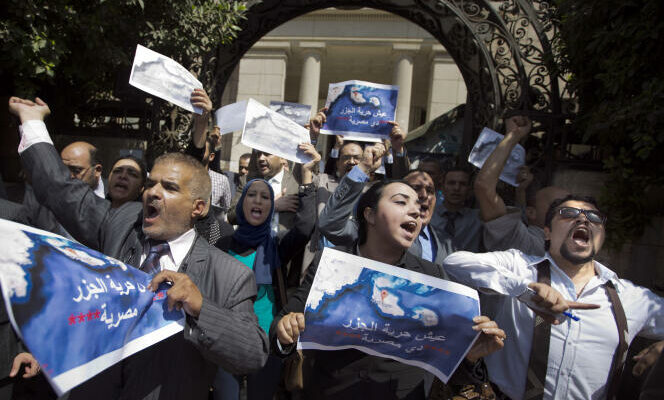It is a huge lifeline, dropped at a high price, on a stretch of the Egyptian Mediterranean coast. While Egypt is faced with a glaring lack of foreign currency, the United Arab Emirates are preparing to inject 35 billion dollars (32.1 billion euros) into the country in two months. Most of the funds are intended for the development of Ras El-Hikma, a peninsula of 170 million square meters (the size of the Arcachon basin), stretching over nearly 50 kilometers of white sand beaches.
Behind this acquisition is the Emirati sovereign wealth fund Abu Dhabi Developmental Holding Company (ADQ), headed by Sheikh Tahnoun Ben Zayed, the brother of the leader of the Emirates, Mohammed Ben Zayed Al Nahyan. ADQ, which will manage the project, wishes to make Ras El-Hikma “one of the largest new towns developed by a private consortium” by converting it into a luxury tourist destination, coupled with a financial center and a free zone.
This agreement, unprecedented in the history of Egypt, according to its Prime Minister, Moustafa Kemal Madbouli, was announced on February 23 with great fanfare from the new administrative capital, called Wedian or Al-Masa, another huge project in which the emirate has largely invested. At a time when Cairo is drowning in debts estimated at more than $160 billion and facing its worst liquidity crisis in decades – compounded by unrest in the Red Sea and dwindling revenues from the Suez Canal – these investments massive amounts constitute a breath of fresh air for Egyptian power.
“An unexpected rescue”
“It’s an unexpected rescue. In the short term, this capital will help stem the dizzying deterioration of the economy. Inflation will fall. But for how long ? We must not underestimate the government’s ability to squander these funds without investing them in sustainable projects.”, worries Timothy E. Kaldas, co-director of the Tahrir Institute for Middle East Policy, an NGO dedicated to the democratic transition in the Middle East. “Nothing will change if the government persists in the same policy followed for ten years: the multiplication of extremely costly and poorly profitable mega-projects for the country’s economy, mainly benefiting a nebula of supporters and those close to the regime”continues the researcher.
The infusion of greenbacks from Abu Dhabi will be staggered in several installments: 10 billion dollars have already been transferred, to which an additional 14 billion will be added within two months; the remaining 11 billion will consist of a disbursement of already existing Emirati deposits in the Central Bank of Egypt, which will be used to finance various projects across the country.
You have 59.6% of this article left to read. The rest is reserved for subscribers.
